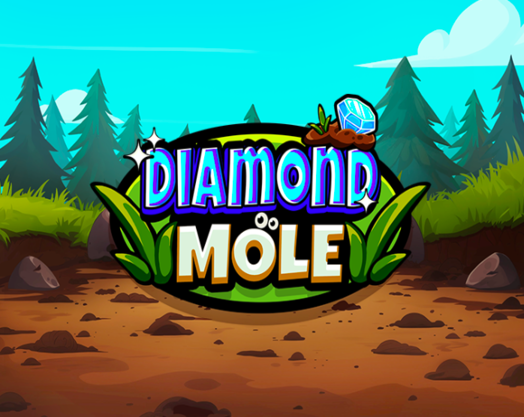From Metrics to Meaningful Belonging
The iGaming industry, long defined by metrics such as retention rates, wagers placed, and cost-per-acquisition, may be on the verge of a paradigm shift. According to Marcus Adolfsson, Vice President of Product at Keep.Social, the next phase of growth will be less about transactions and more about belonging — with community-driven engagement emerging as a core competitive differentiator.
“In the past, success was measured in hours played and jackpots won,” Adolfsson told industry observers. “Today, players are looking for more than a transaction; they want connection. The next chapter isn’t about ‘play and leave’. It’s about ‘stay and belong’.”
| Aspect | Traditional iGaming | Community-Driven iGaming |
|---|---|---|
| Primary focus | Play time, wagers, short-term retention | Belonging, social connections, long-term loyalty |
| Key metrics | CPA, retention days, ARPU | Community-driven interactions, social wellbeing index, referrals |
| Acquisition | Promo-led, paid channels | Organic referrals, peer-to-peer influence |
| Trust & safety | Compliance-driven, transactional | Moderation, peer support, toxicity targets |
Challenging the Numbers Game
Operators in iGaming — spanning online casinos, sports betting, and emerging interactive formats — have traditionally reported success through numbers that are easy to quantify. Investors track cost-per-acquisition and retention rates closely, while regulators keep tabs on volumes of wagers. These benchmarks are comparable, but often short-term.
Yet, analysts note that this “numbers-first” mindset is increasingly misaligned with wider consumer trends. McKinsey, in 2022, described community as “the big idea” for 2020s marketing, while marketing expert Mark Schaefer argued in his 2023 book Belonging to the Brand that community could be “the last great marketing strategy.”
The examples extend beyond gambling. Harley-Davidson reversed its fortunes in the 1980s by launching its Harley Owners Group, which now has more than a million members worldwide. Lego has invited fans to co-create products since 2008, while Nike and Apple have turned customer interactions into thriving ecosystems.In comparison, iGaming has been slow to embrace community as a driver of growth. That, Adolfsson suggests, is changing. Keep.Social’s pitch is straightforward: social connection translates into measurable economic benefits. Adolfsson identifies three main areas where community impacts operator performance:
- Retention: Players return not only for the games, but also for conversations, relationships, and shared experiences.
- Acquisition: Word-of-mouth and peer-to-peer influence reduce reliance on expensive marketing campaigns.
- Trust: A well-moderated, engaged community fosters credibility with players, regulators, and partners alike.
“Belonging changes the economics of the business,” Adolfsson said. “It turns casual users into long-term loyal players.” One key mechanism is “social proofing” — the tendency for players to trust platforms more when they see peers sharing wins, celebrating milestones, or contributing to community goals. While traditional iGaming focused on isolated play, future platforms may operate more like social networks, with feeds, profiles, and ongoing conversations that extend beyond gameplay itself.
Breaking the Ice
Building such communities is not without its challenges. Many players are hesitant to be the first to share content or engage. Adolfsson refers to this as the “ketchup effect”: nothing moves at first, then once enough momentum builds, participation flows rapidly.
“Every community needs leaders to set the tone,” he explained. Moderators and ambassadors can jumpstart engagement, after which conversations begin to multiply organically. For operators, this stage marks the transition from transactional gambling to enduring loyalty.
Responsibility at the Core
With deeper engagement comes greater responsibility. Industry analysts stress that operators embracing community-driven models must prioritize safeguards around healthy play, inclusivity, and sustainability.
Keep.Social recommends features such as peer support tools, transparency in moderation, and gamification that encourages balance rather than excess. Representation across avatars and events, accessibility for different digital literacy levels, and environmentally conscious infrastructure are also seen as key factors — particularly for younger demographics.
The company has even proposed a “North Star” metric: the share of player interactions that are community-driven and responsibly moderated. Supporting measures include a social wellbeing index targeting 95% toxicity-free interactions, and tracking peer-to-peer support volume. The conversation arrives at a pivotal moment. Globally, iGaming is projected to continue expanding as regulation loosens in new jurisdictions. In the United States, where sports betting has rapidly proliferated following the 2018 repeal of PASPA, competition is intense and marketing costs are soaring. Analysts note that operators spend billions annually on acquisition, with few achieving sustainable profitability.
Community-based strategies could provide a solution to spiraling costs. By embedding belonging into platforms, U.S. operators may cultivate organic growth rather than depending on costly promotional offers. However, adoption may be uneven. Larger brands may struggle to pivot away from bonus-driven models, while newer entrants could leverage community to differentiate themselves.
Globally, markets in Europe and Asia may provide testing grounds. The European sector, more mature and heavily regulated, has already seen experimentation with community features. Meanwhile, Asia-Pacific markets — where social gaming overlaps with gambling — could be fertile ground for hybrid models.
The next chapter of iGaming isn’t about ‘play and leave’—it’s about ‘stay and belong.
A Shift Still in Motion
For now, the emphasis on belonging remains aspirational, with only a handful of iGaming operators moving decisively in this direction. The industry’s reliance on hard numbers, coupled with the risks of managing online communities, makes the shift a complex undertaking.
Yet if Adolfsson and Keep.Social are correct, the reward could be substantial: a transformation of iGaming from a transactional, high-churn sector into one where trust, retention, and sustainable engagement underpin long-term growth. “Communities are evolving beyond leaderboards or chat functions,” Adolfsson concluded. “They are becoming living ecosystems where moments carry meaning long after the game is over. That is the future of iGaming.”









